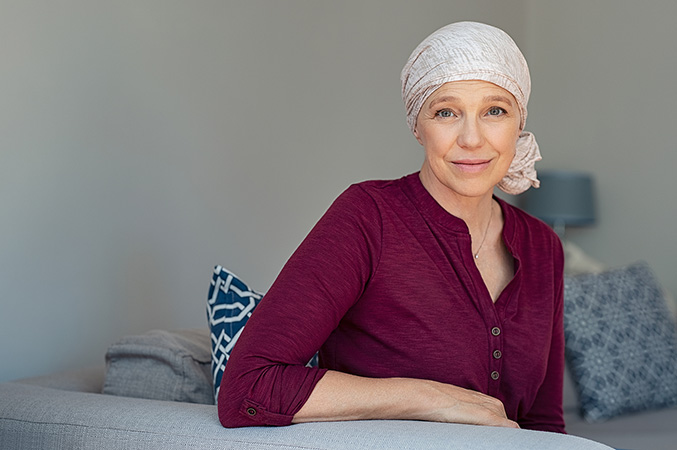For cancer patients especially, staying mentally and physically strong is vitally important.
If you or someone you love is battling this disease, here are some helpful, healthy tips to bear in mind as we enter 2024:
- Be positive during treatment. Have open communication with your healthcare team to ask about side effects, and be proactive in mitigating them.
- Ask for help from family and friends. Cancer treatment is difficult at times, and if you need help physically and emotionally, do not be afraid to ask for it.
- Focus on emotional wellbeing; meditation helps. Also, if there are significant changes in your mental health, talk to your provider. They could be a treatment side effect. For example, endocrine therapy for breast cancer can cause mood changes.
- Implement a healthy diet and exercise regimen that has been approved by your healthcare staff. With some treatments, you may lose or gain weight.
- Smoking cessation is always helpful to decrease your risk of cancer and help improve your treatment outcomes.
- Drink alcohol in moderation.
- Take over-the-counter supplements after discussing them with your provider, as some may interact with medications.
- Cancer patients and others in an immunocompromised state should discuss vaccinations to reduce the risk of infection with their healthcare providers.
If you are not a cancer patient, you should consider taking steps to reduce your risk and focus on a healthy lifestyle in the New Year:
- Eat a healthy diet and exercise. Maintain a healthy body mass index.
- Quit smoking, and drink alcohol in moderation.
- Stay current with vaccinations.
- Prioritize sleep, and maintain good sleep habits.
- Wear sunscreen.
Also, follow up with your primary care providers for cancer screenings:
- Breast self-exams are encouraged, and annual mammograms are recommended for women starting in their 40s.
- All adults starting at age 45 should get screened for colon cancer. The initial recommended screening test is a colonoscopy. If you are unable to do this procedure, a fecal immunochemical testing (FIT) can be performed.
- January is Cervical Cancer Awareness Month. Please check to see if you are up to date with the HPV vaccination and the pap smear screening test.
The screening recommendations for cervical cancer are as follows:
- Screening is recommended for ages 21-65.
- Those ages 21-29 should receive a pap smear every three years.
- Those age 30 and above should receive a pap smear every three years, or primary HPV testing alone every five years or co-testing (pap smear and HPV testing) every five years.
- Current smokers or those with a history of smoking should talk to their providers about doing a CT lung scan.
Make 2024 a year of health!



